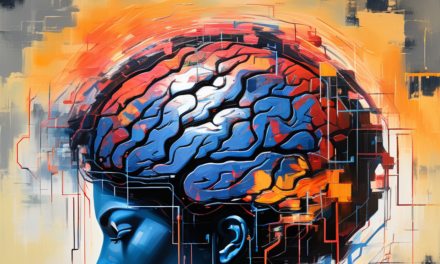In an era marked by unparalleled speed and deep-rooted uncertainty, it is no longer true that the past informs the future.
Workplaces are evolving due to changing workforce demographics and technological advancements including AI. At The WayFinders Group we believe leaders and organisations need to recalibrate the way they approach people, culture and governance. As society becomes more polarised and multicultural, mediation will play an increasingly critical role in shaping the future of work.
Changing People
Four years ago, people leaders were “adapt[ing] to changing global workforce demographics – all the while tackling issues of racism, inequality, discrimination, sexism and harassment in the workplace” (CIPD). The story hasn’t changed much in 2024; in fact, employers have had to consider how to manage the needs of ethnic minority workers who feel vulnerable as well as workers suspected of civil disobedience in a world where ideological clashes are becoming more frequent.
Fueled by news soundbites and short clips on social media, echo chambers drown out debate; the importance of disagreeing well is a skill that is paramount to ensure the proper functioning of effective teams and organisations. When framed in extremes, public discourse focuses on the subject matter of the disagreement (appealing to logic), but conflict resolution shifts the focus onto how those differences are communicated (fuelled by emotions). Peoples’ unresolved opinions march right into the office! In the UK, a third of workers have experienced some form of interpersonal conflict: 62 percent of employees have colleagues from three or more cultures, and in the UK film and TV sector alone, 84 per cent of workers have experienced or witnessed bullying and harassment.
Last year, the cost of resolving conflict for UK organisations was £28.5 billion, approximately £1,000 per employee.“Experiences of conflict [in the workplace] can lead to low morale, sickness, stress, absenteeism, decline in productivity. Management time spent on disputes can escalate quickly and it can easily start to affect wider team members.” CallIt!, for example, empowers everyone to create a safer, fairer place of work. However, leaders still need to do more to improve the governance of organisations and to create a culture where the resolution of conflict is broached head-on, and where possible, workplace harmony can be restored.
Mediation provides a solution insofar as it is hierarchy-agnostic and offers a voluntary, confidential process, facilitated by a neutral third party, allowing those present to explore the issues and move forward. Mediation is generally seen as a constructive process for enabling effective conversations, rebuilding trust, improving collaboration and moving towards a more cohesive culture and positive work environment.
Deloitte reports that “the workplace is no longer a specific place, […] the more boundaryless work becomes, the more important uniquely human capabilities – like empathy, emotional intelligence, the ability to navigate complex social dynamics, and curiosity – become.” And this is the crux of the matter: human capabilities remain intrinsic to the future of work, which means that the ability to meet the needs and demands of a thriving workforce requires a human at the centre.
Evolving technology
Extrinsically, society continues to investigate the implications of artificial intelligence but when assessing technology’s ability to provide an interpersonal touch, for example intervening in conflict situations, we have a long way to go. The intervention of a skilled, independent mediator plays a proactive and much-needed role in helping the participants bring their needs and interests to the table, identifying common ground, and inching towards resolution.
New digital advances like generative AI are exposing an imagination deficit. To counter this, organisations need to cultivate distinctly human capabilities like curiosity, empathy, and creativity even more. AI fundamentally lacks the human capacity for these qualities. Mediators manage emotions like fear, anger, and frustration. They also create an environment where participants can express their emotions constructively. Human mediators’ flexibility and adaptability, in contrast with AI, enables them to meet the unique requirements of each case in real-time.
Deloitte reports that new technologies, while offering the improvement of human performance, also “present challenges, requiring organisations to develop new frameworks of responsibility to ensure they are used in a way that elevates, rather than diminishes, trust.” Where trust is breached, mediation is the optimal, bridge-building process, giving employees an opportunity to regroup without the indignity of sweeping things under the proverbial rug.
As a result, technology is not yet equipped to replace mediation which as a process is grounded in the mediator’s human capacity for not only imagination, empathy but also intuition. An important limitation of AI is that its creativity is confined by its inability to conceive of a world where there is no box. AI will require further development to display competence over the more human aspects of dispute resolution, such as understanding emotional undercurrents and building trust among parties.
Conclusion
With all the changes to the global workforce demographics and the various issues that that poses, mediation plays a key role in resolving disputes. It brings human creativity and the capacity for empathy into the picture which AI falls short of. As Albert Einstein once said, “Logic will get you from A to B. Imagination will take you everywhere.” Mediation presents a real tool that will take the future of our work down unconventional paths. At The WayFinders Group, we believe it will take us closer to a world where leaders, employees, organisations and communities are living lives transformed by reconciliation.
Leah Brown FRSA helps leaders and organisations navigate change. As a former general counsel and company secretary, she’s learned how to tame the egos around the boardroom table.
Since 2009, Leah has worked for food industry tycoon, “The Chicken King”, she’s worked in a boutique hedge fund with more relationship faultlines than unresolved plotlines in Season Two of Succession. Leah had a particularly prickly stint at an established Middle Eastern sovereign wealth fund where her integrity was challenged every day, and went onto deliver a strategic exit for the man who referred to his entire workforce as “dumb dolphins” and later fired 900 employees on Zoom. She went onto work for an executive who fired his entire team the day before their equity vested.
Leah has seen the full gamut of excellent to poor leadership; she understands what makes people tick and is willing to give people in the wildest of situations the benefit of the doubt. If you really want to remove the ego from the picture, you have to face up to it; usually that means going to uncomfortable places and having difficult conversations. Hence “The WayFinders Group” - a business bold enough to challenge the ways things are currently done and humble enough to present a different way to lead.
Leah is passionate about creating lightbulb moments where people believe they can achieve things that previously felt impossible. She excels at holding space for people to resolve difficult issues. She likes to tackle new challenges so people can chart the uncharted. A true pioneer and wired to help people make a difference, Leah is unafraid to step with you into the unknown.






